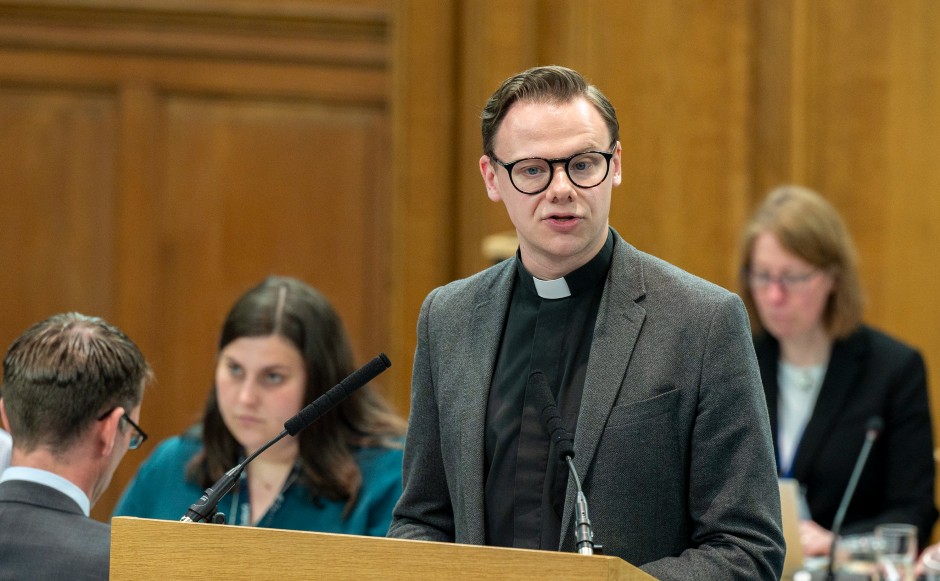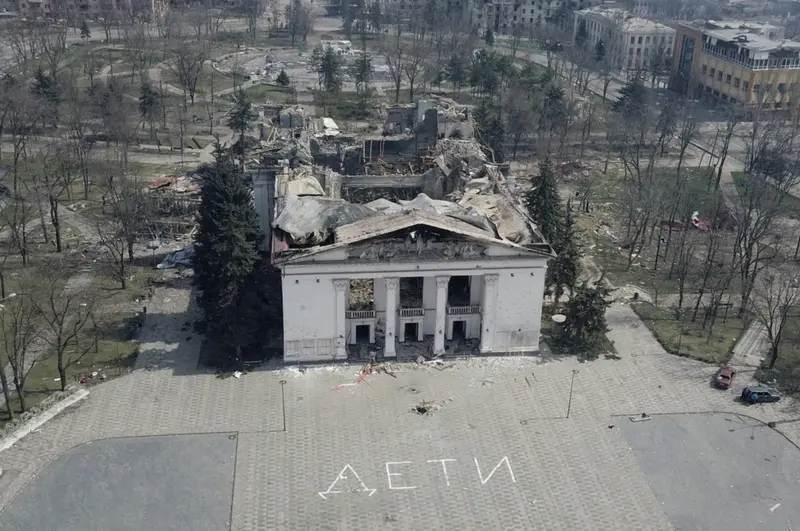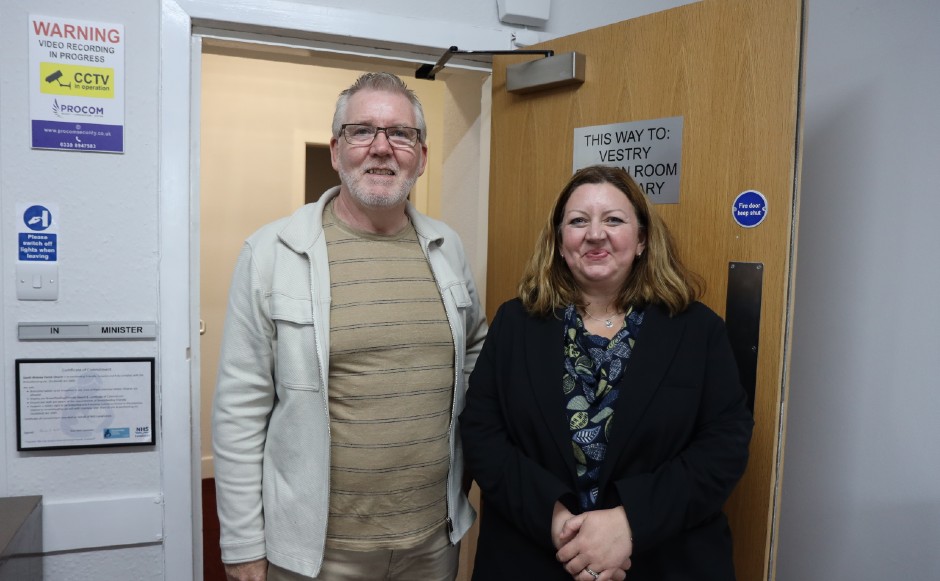Kirk’s Faith Impact Forum to explore wide range of global and societal issues at General Assembly
Published on 27 April 2022
The Faith Impact Forum will ask the 2022 General Assembly to approve Church actions on a wide range of global and societal issues, from exploring the use of digital technologies for congregations, gender identity, highlighting work around drug use and recovery, to a new glossary of Jewish and Christian terminology to aid interfaith relationships, and a call to ban conversion therapy.

The Faith Impact Forum's report also updates commissioners on ongoing work, from supporting congregations to welcome refugees, anti-poverty campaigning to advocating for poorer countries' access to vaccines, and the commitment to achieving a Net Zero Church by 2030.
Welcoming Refugees
The Russian invasion of Ukraine added fresh urgency to the Church's international and domestic work with refugees and asylum seekers. The Forum has coordinated the Church's efforts to help congregations offer hospitality to refugees through community sponsorship, making sure congregations have access to crucial information on the Homes for Ukraine programme as well as practical information on using church buildings, safeguarding and hosting. Regular contact with Reformed Churches in the region has brought opportunities for peacemaking, pastoral support, worship and prayer. The Church has encouraged donations to international crisis response efforts and to date has raised £297,627 for our partner, the Reformed Church in Hungary Aid.
In Italy, partner organisation Mediterranean Hope continues to create safer routes for newly arrived refugees and asylum seekers and to advocate for them.
At home, in partnership with Scottish Faiths Action for Refugees, the Faithful Welcome project is now helping congregations support refugees, including those from Afghanistan and Ukraine, integrate into Scottish society. Politically, the Church has spoken out against harsh provisions in the Nationality and Borders Bill, raising its voice for all those seeking sanctuary on our shores.
Drug deaths and social care
Drug deaths in Scotland remain higher than in other parts of the UK and Europe and the Scottish Parliament is expected to consider proposals to address this crisis. Drug policy is reserved to the UK Government, however politicians from all parties are looking at what can be done. One Bill under consideration has been A Right to Addiction Recovery, intended to improve access to treatment.
The report notes that the Church of Scotland has expertise to offer. CrossReach provides a range of services to substance users, and many church ministers, including Very Rev Dr Martin Fair and Moderator Designate Rev Dr Iain Greenshields, have experience in recovery work. Commissioners will be asked to support the Forum in undertaking a wide-ranging review of the Church's policy on drug and addiction recovery and to report back in 2023.
In addition, far-reaching reforms to social care are expected to be part of the Scottish Government's legislative agenda and these will have an impact on CrossReach and also on congregations engaged in supporting elderly and other vulnerable individuals. The Forum has contributed to a consultation on the Government's National Care Service proposals and will continue to highlight opportunities and concerns for the Church.
Making progress on digital work
The report proposes that the Society Religion and Technology project should add a focus on digital issues over the next few years. The project will look at applications of technology for worship and sharing faith, including through the potential of the metaverse.
‘For individual congregations, this may mean things like more accessible websites, or the livestreaming of worship services on platforms which we already use such as Facebook,' the report says. For the Church nationally it will mean learning from other Churches and organisations:
‘Several Church organisations have interactive apps, which share prayers, bible studies and news, as well as showing where a nearby church is. There are also some great examples of innovative practice within the Church of Scotland which could be shared more widely. Our impression, however, is that there are many who would appreciate help and guidance from those with experience or skills in this area.'
Recognising many people now feel as comfortable online as they do ‘in real life' the report asks:
‘How does the Church inhabit both places with authenticity and integrity? What is the potential for our involvement in these technologies? What would a Church of Scotland presence in the ‘metaverse' look like? What would its absence mean for mission?
‘There is much to be done, and many questions to be asked. We need to make progress on the digital journey.'
Gender identity and the Gender Recognition Reform (Scotland) Bill
The Scottish Government has introduced legislation to make it easier and faster for people who wish to apply for a Gender Recognition Certificate to do so.
The Faith Impact Forum recognises that there is likely to be diverse and deeply held opinions on this matter within the Church as well as in Scottish society as a whole. The report notes that gender identity and transgender issues are likely to be discussed generally in society as well as in Parliament when the bill is considered. It also notes that the Church has produced a booklet, 'Diverse Gender Identities and Pastoral Care', to support understanding and pastoral work.
The Forum proposes to ‘consult and engage constructively on the issues that will soon come before Holyrood' and urges ‘individual ministers, elders and members to consider the ideas for reform themselves, and if they are so moved, to make representation to their own MSPs.'
The Scottish Churches Parliamentary Office will issue a briefing once the legislation has been introduced.
The report also acknowledges that public discussions on transgender identity – particularly on social media – have become angry and bitter. The Church should be an advocate for reconciliation and healing, the report says, engaging pastorally and supporting all involved with prayer.
'…we urge prayer for those who feel afraid, misunderstood or marginalised on both sides of the argument. We hope that as legislation is brought forward, its consideration can take place in an atmosphere of empathy, kindness and co-operation.
'Campaigners, politicians and those commentating on public life have a role in contributing to this culture, and no one on neither side of the debate should have to face personal attacks for expressing their thoughts, feelings, opinions or experiences.'
A ban on conversion therapy
The General Assembly will be asked to support the ‘Memorandum of Understanding on Conversion Therapy in the UK' which has been agreed by more than 25 counselling organisations, professional psychiatric and psychology groups and by the NHS in Scotland, England and Wales. The memorandum seeks to legally ban any therapy that ‘assumes certain sexual orientations or gender identities are inferior to others, and seeks to change or suppress them on that basis.'
Other Churches, including the Church of England and the Methodist Conference, have backed the ban, which is seen as particularly relevant to Christians because conversion therapy historically has been carried out in religious settings.
The Faith Impact Forum asks commissioners to consider the decision of the 2011 General Assembly on pastoral care for homosexual Christians that affirmed:
‘It is contrary to God's will that Christians should be hostile in any way to a person because he or she is homosexual by orientation and in his or her practice. In other words we view homophobia as sinful…
‘It is the duty of the Church to welcome, minister, and reach out to people regardless of their sexual orientation and practice. The Church should strive to manifest God's love to all of his people.'
Jewish-Christian Glossary
Commissioners will be asked to approve a new Jewish-Christian glossary, which defines some of the key terms used in both religions and what they mean to people from each tradition. Ministers and rabbis worked together on the project, focussing on:
‘terms and words that either directly or implicitly convey beliefs and attitudes to the politics and theology of land. These words and terms were identified because of their prominence and importance with overt theological connections to Israel and Palestine such as ‘holy land' and ‘Israel'.
‘Some were chosen because they were very specifically important to the beliefs of one faith and identity in relation to Israel and Palestine, and would aid understanding by drawing attention to them. These include ‘Chosen People', ‘Kingdom of God' and ‘exile'.'
The glossary is intended to benefit its users through learning more about both their own and the other faith, by discovering key similarities and differences between the faiths and by offering a new way to approach ‘and express hopes and prayers for peace and justice in Israel in Palestine.'
New action on work already underway
The report also reaffirms commitments to working with others to achieve goals agreed by previous General Assemblies. Those areas of work include:
- Continuing to work with partners on anti-Poverty campaigns such as ‘Scrap the Cap' which seeks to end the benefits cap policy
- Continued work to achieve Net Zero by 2030 (an ‘Environmental Footprint Tool' will be made available to congregations in the second half of 2022)
- Promoting efforts to ensure vaccine equity so that poorer countries have fairer access to Covid-19 vaccines
- Supporting the Korean Peace Appeal and efforts by seven faith groups on the peninsula to end the Korean War by collecting 1 million signatures by June 2023, the 70th anniversary of the signing of the Armistice Agreement
- Uncovering the legacy of slavery within the Church and exploring ways to mitigate its harms
- Supporting presbyteries and congregations engaging in Equality, Diversity and Inclusion work through research, information, dialogue and highlighting excellent practice
- Continuing work to end gender-based violence through delivering training from Integrity, the Church's violence against women group
- Advocacy for Christians and religious minorities in Pakistan in particular through opposing abuses such as forced conversion to Islam, abductions and forced marriage
- Supporting partner organisations in Lebanon through the 2022-23 stamp appeal
- Adopting the All-Party Parliamentary Group on British Muslims's definition of Islamophobia
- Continue to advocate for improved end-of-life care and against the Assisted Dying bill
The 2022 General Assembly will take place from Saturday 21 May until Thursday 26 May. It will once again be a hybrid event, with some attending in the Assembly Hall and others participating online. The proceedings will also be livestreamed on the website.


